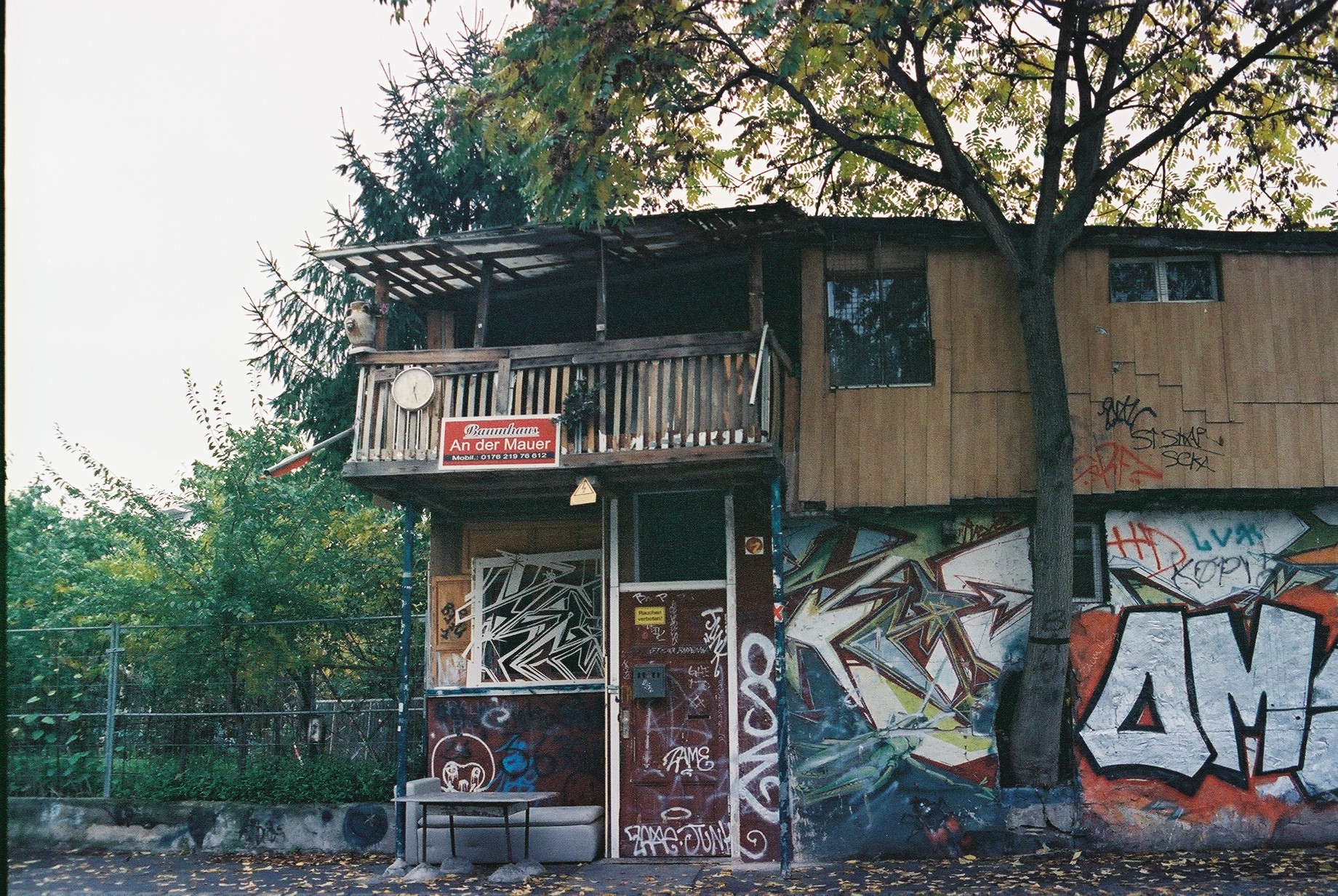ABANDONED BERLIN
WRITTEN BY Hayley Flynn
READING TIME: 4 minutes
The tragic tale behind Berlin's Spreepark.
Just visible from my hostel, along the river towards Treptower, a ferris wheel pokes above the trees. It’s hidden in the forests of Plänterwald, in the former GDR of Berlin and was part of a popular theme park for school children visiting from Eastern Bloc countries and originally called Kulturpark Plänterwald.
Opened in 1969 it was sold twenty years later to Norbert Witte when it had closed with the falling of Berlin Wall. In 1991 it reopened as Spreepark, the sale to Witte also saw the park declared as a nature sanctuary. This declaration was partly what shut down the park some 10 years later when car parking for the venue was dramatically slashed in order to protect the woodland.
At the start of his tenure at Spreepark Witte purchased new rides from a closed amusement park in Paris called Mirapolis, these included the pirate ship, ferris wheel and the plaster dinosaurs which are left crumbling there today. By 2001, due to dwindling numbers, the park that once saw 1.5 million visitors a year, declared bankruptcy.
In 2009 a documentary by the names of Achterbahn (Rollercoaster) was made by directory Peter Dörfler, the story focussed on the bankruptcy and the measures the Witte’s went to to claw back their fortune and get out of debt. The Witte’s soon travelled to Lima, Peru and took with them six rides so that they could eventually open a new park - Lunapark. The city of Berlin were not particularly enamoured with this move as the Wittes left not only a decaying park but also their multi-million debt.
For whatever reason, Lunapark didn’t transpire and the rides Witte retained were rotting in the salty air of Lima, with few professionals able to restore them. Witte’s debts were accumulating even now and he turned to the help of a former employee who had connections with drug dealers in South America. Norbert suffered several heart attacks and returned to Germany for treatment. In 2003 Norbert, from his sick bed in Germany, and his son Marcel, still in Lima, planned to transport the rides back to Berlin informing authorities they intended to repair them in Germany. The plan was more sinister than that, they plotted to smuggle cocaine but were unaware that one of their men was a police informant.
Both Norbert and Marcel were arrested for attempting to smuggle 167 kilos of cocaine in the flag-mast of the magic carpet ride back to Berlin.
Norbert served 4 years in a low-security German prison but his son Marcel was imprisoned in Lima and sentenced to 20 years. Marcel, at the time of conviction only 21 years old, is said to have played only a minor role in the operation but he remains in jail to this day in what is known as one of the worst prisons in the world: Sarita Colonia. During his imprisonment he has attempted suicide.
Norbert descends from a line of carnival workers including his Grandfather Otto who deceptively acquired the title of King of Albania, the carnival is in his blood and since his release from prison he has lived in a trailer in the park and is working on dismantling it to build travelling huts for carnivals and food markets.
Norbert’s wife Pia and daughter Sabrina had returned from Lima ahead of him realising his dreams of Lunapark were exactly that, and together they’ve opened a cafe near to Spreepark and organise tours, as well as encouraging its use as a film set in the hope to recoup the millions they owe and to help her son who is imprisoned in a system of greed (inmates at Sarita Colonia must pay their way through jail, renting their beds amongst other things).
Pia and Norbert are divorced and estranged, she is unable to forgive him for the fate of Marcel.
Guilt must weigh heavy on Norbert Witte’s mind, not only is his son’s life in ruins but in 1981 he was named as the cause of the worst-ever carnival accident in Germany. Whilst repairing a ride at a fair in Hamburg his crane crashed into a ride that was in use and seven people were killed.
The park is guarded and patrolled by dogs to protect the public from the huge risks the rusting rides pose. Whilst I was in Spreepark a British dandy with a ‘hip’ briefcase and blazer who had managed to find his way into the park doggedly followed me around asking questions that proved beyond doubt that the public can be blind to the obvious dangers. Flipping his quiff out of his eyes he tugged at my sleeve:
“excuse me, am I allowed to ride on the Ferris Wheel?”
Whilst there the ferris wheel that once stood still for nine years began to move. The wheel continued to spin for the two hours I was inside, all the while it creaked and screeched and in the echoing corners of an empty log flume station it sounded exactly like delighted screams of children. The ghost sounds of another, more innocent time.
An excellent article about the plight of the Wittes can be found here.



























